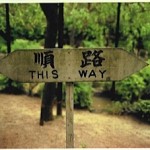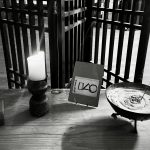INCORPORATION
1) Sun Mountain Zen has been incorporated as a non-profit organization since the 13th April,
2006.
PURPOSE
2) Its purpose is to facilitate zen meditation by providing teachers, places in which to meet,
teaching resources, interviews and teishos within the context of Sun Mountain Zen Sangha,
its supportive community of lay practitioners.
LINEAGE
3) Sun Mountain Zen is affiliated with Sanbo Zen International which is a lay group of zen
practitiomers founded in Japan in 1954 by Yasutani Haku’un Roshi. It follows in the footsteps
of Shakamuni Buddha in seeking to realize our true nature and is open to all people who
wish to practice Zen, regardless of their nationality or faith. The members are bound
together by a common commitment to practice zazan with the aim of realizing wisdom and
compassion in their own lives and in the world.
MEMBERSHIP
4) Sun Mountain Zen has three classes of membership:
a) An ordinary member, defined as being a recognized student of our teachers, being a
financial member of sun mountain zen,
b) A life Member, defined as being a recognized Teacher with sun mountain zen, and
c) An honorary member, being a person who has been voted in as an honorary member by
a majority of the committee and endorsed by the teachers of sun mountain zen.
GOVERNANCE
5) Sun Mountain Zen is governed by regular committee meetings, held in compliance with the
Association Incorporations Act.
6) The Annual General Meeting is normally held in Februaury or March and is nominated in the
published annual calendar. All members of Sun Mountain Zen are eligible to attend, vote
and nominate for Committee Positions.
7) The Committee positions are:
a) Chairperson
b) Secretary, and
c) Treasurer
FEES
8) The costs associated with the provision of services for members are determined by the
budget accepted at the Annual General Meeting, and then posted on line when decided.
9) No student will be refused the teachings based on costs. The degree of sponsorship will be
determined privately upon representations being made.
GENERAL ETHICAL GUIDELINES
10) As a lay community of Zen practitioners, the members and teachers of Sun Mountain Zen
resolve to conduct their lives and relationships by taking the Three Pure Precepts as the
guiding principle. They are:
1) To avoid all that is harmful
2) To foster and promote all that is good, and
3) To purify our minds and seek the liberation of all sentient beings in all our thoughts,
words and actions.
We are also bound by the Ten Grave Precepts which are:
1) Honour all life, do not kill.
2) Respect other’s property, do not steal.
3) Speak truthfully, do not lie.
4) Respect your own and others bodies and commitments, do not misuse sex.
5) Keep a clear mind, do not abuse drugs and intoxicants.
6) Uphold the good name of others, do not engage in harmful speech.
7) Live in truthful humility, do not praise self or put others down.
8) Be generous, do not be stingy with material or spiritual goods.
9) Cultivate a peaceful heart, do not engage in anger, and
10) Uphold the Buddha Dharma, do not defame the Three Treasures of Buddha, Dharma and
Sangha.
AIMS AND OBJECTS
11) Sun Mountain Zen aims to:
1) Promote a supportive and safe environment for the ethical teaching and practice of zen
2) Encourage open and respectful discussion, when necessary regarding questionable
behaviour on the part of Teachers or Students, and
3) Support sangha teachers and students in addressing unethical behaviour by setting up
clear guidelines for behaviour and measures for handling violations.
SANGHA RELATIONS
12) Those in leadership positions (Teachers, Board Members and any paid staff) are expected to
be especially careful not to abuse their power for personal gain or satisfaction.
13) The teacher-student relationship and relations among students will be conducted in
accordance with the Ten Grave Precepts.
14) All relationships will be conducted with mutual honour, respect and esteem. Boundaries and
confidentiality will be maintained in matters of individual practice and personal life, striving
to maintain right speech at all times.
15) When students are introduced to the practice of zen they shall be provided with a copy of
this document.
16) The acceptance by a teacher of the authorization to teach includes acceptance of this code
of conduct as well as responsibility for the safety and authenticity of their student’s practice.
17) The student-teacher relationship is a consensual one. Either party may withdraw from the
relationship by advising the other party.
18) Neither student nor teacher are ever to initiate contact of a sexual nature.
DISPUTE RESOLUTION
19) When psychosocial problems affect the ability of an individual to practice or teach, the issue
is to be addressed through coping mechanisms or consultation with professionals.
20) Matters of concern should be resolved within the sangha by honest interpersonal dialogue
with the person concerned and, if the matter is not resolved, with their teacher.
21) If the complaint involves the teacher, or, the teacher’s response is unsatisfactory, senior
members should then attempt to resolve the issue. The complaint may be delivered orally or
in writing.
22) Concerns should be dealt with in a timely manner.
23) Only when internal processes fail or the sangha considers the matter too serious to resolve
internally, should the matter be brought to the attention of the Sanbo Zen International
Harmony, Ethics and Reconciliation Committee.
24) If anyone has just cause to claim that a serious violation of ethical principle has occurred,
especially in matters that include abuse of authority, financial impropriety, or of a criminal
nature with legal and public consequences, and has not been resolved within the local
sangha, s/he should make a formal complaint to the Harmony, Ethics and Reconciliation
(HEAR) Committee.
25) A formal complaint is to consist of a written description of the violation, with the name of
the person(s) accused of committing the violation, along with supporting documentation or
other evidence to establish the veracity of such a claim.
26) The HEAR Committee will then be appointed by the Board in consultation with the Council of Teachers and shall consist of no less than 3 and no more than 6 members, and may include
persons from outside the Sangha who have special competence with the particular type of
allegation(s) raised.
27) The Committee will then determine, within a specific timeframe, the veracity of the
complaint and recommend to the Board the implementation of such measures as shall fairly
resolve the complaint.
28) Upon receiving such a report the Board will take such measures as are reasonably necessary
to resolve the dispute, including the obtaining of a mediated resolution, reparations,
expulsion or suspension from a leadership role or sangha membership, or, reporting the
matter to legal or other enforcement authorities outside the Sangha where such matters can
appropriately be dealt with.












